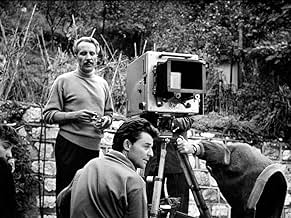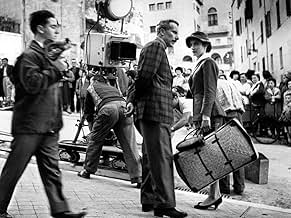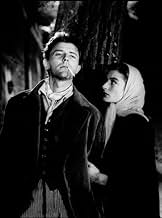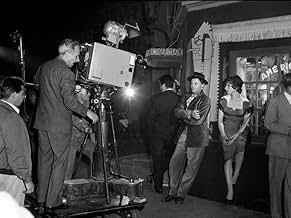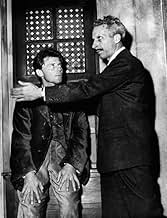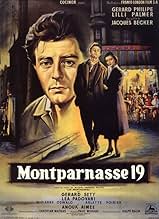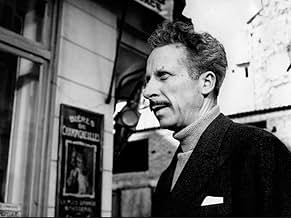In 1919, the painter Amedeo Modigliani spent the last year of his life. He lived in abject poverty in the Parisian artists' quarter of Montparnasse. This is the story of the film by French director Jacques Becker (1906-1960), who created such masterpieces as TOUCHEZ PAS AU GRISBI (1954) and LE TROU (1960).
Modigliani (Gérard PHILIPE) is kept afloat by Anna Zbirowska (Lila KEDROVA / OSCAR 1965: ACADEMY AWARD for ALEXIS SORBAS) and her husband, and his gallerist Berthe Weill (Marianne OSWALD) also tries hard to find buyers for his paintings. But it's simply not enough. The handsome Modigliani also has to accept payment for his sexual services from the British writer Beatrice Hastings (Lilli PALMER / GOLDEN GLOBE 1960: nomination for BUT NOT FOR ME). The only bright spot in this messed-up situation is his tender love for the young Jeanne (Anouk AIMÉE / OSCAR 1967: nomination for UN HOMME ET UNE FEMME). But the path to self-inflicted ruin seems inevitable. Or could the interest of the art dealer Morel (very diabolical: Lino VENTURA) bring the longed-for salvation?
Jacques BECKER took on this commissioned directorial role as a replacement for his idolized Max OPHÜLS. Becker apparently got along well with the leading actor Gérard PHILIPE (1922-1959), but he apparently rejected his style of performance. Becker couldn't have prevented such a major French film star as Philippe from appearing, even though it completely contradicted his style of filmmaking. This is certainly evident in the film, but Becker has turned it into the eternal drama of a misunderstood artist (the complete opposite of Philippe), who can only be "recognized" by the audience after his death.
The wonderful Lilli Palmer (1914-1986) plays her small role superbly, as always. The lack of dubbing makes it possible to discover today what was cut from the film for West German audiences at the time. At the very beginning, the writer played by Palmer ends up in bed with the main character and is seen again after the act. Seeing the crowd-pleaser Palmer in such a compromising situation was probably too much for West German audiences to bear at the time. Bygone days!











